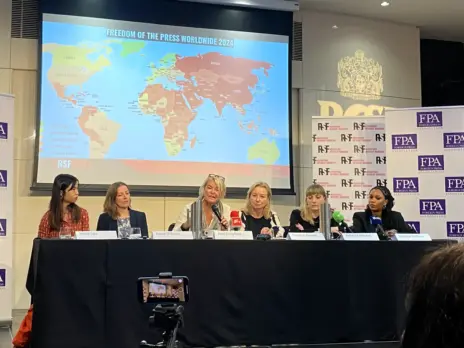Now, finally, we know what it takes to get Ofcom out of bed.
Cindy Crawford used to demand $10,000 a day. In the case of Stewart Purvis, the absurdly-named partner for content and standards at Ofcom, it’s a 37% YOY decline in ad revenues at Northcliffe Media.
Oh, and 1,000 job losses.
Wiping the sleep from his eyes, Purvis — whose CV includes stints at Channel 4, ITN and the BBC — was all over the news bulletins last night.
What we got was yet more bleating about the role of local newspapers in a democracy. (In case you were wondering, their role is to tell voters what goes on in government ‘between elections”).
The abiding impression created by Purvis’s soundbite was that of a man flapping his arms in the air and repeating: “Something must be done.”
This is fine so far as it goes. But Purvis has got competition. For months now, culture minister Andy Burnham has been performing this role.
Regrettably, when it comes to taking real action — or any action at all — the minister has proved as useful as a one-legged man in an arse-kicking contest.
But still: let’s not be too harsh. Let’s ask instead what has woken Purvis from his slumber. What, in other words, was so special about yesterday’s announcement from DMGT?
On 18th March, Gannett announced that Newsquest’s ad revenues declined by 32% (in constant currency) during January and February.
On 11th March, Johnston Press announced a 36% decline in ad revenues during the first nine weeks of the year. On 26th February, Trinity Mirror forecast a 37% decline in regional ad revenues during January and February.
The idea of freefall declines in regional ad revenues isn’t new. It’s been staring the industry in the face since last autumn.
Did anyone genuinely think that the 25%-30% YOY declines in regional ad revenues recorded during Q408 were going to be the end of the story?
For the past six months, this government’s response to signs of distress among local media has been consistent: let Lord Carter deal with it.
Carter largely ignored the gathering crisis in local newspapers in his interim report which was published in late January. But he provided a glimpse of his thinking last week.
On Tuesday 17th March, Sly Bailey –- whose willingness to make waves is becoming admirable — told the FT that regional newspapers face ‘immediate peril”.
Two days later, a reporter asked Carter about Bailey’s repeated criticisms of him.
The noble technocrat had this to say: ‘Internet advertising is repricing traditional media inventory. I’m not entirely sure there’s an awful lot you can do about that.”
Carter’s quote got me wondering. What if the bleating of bureaucrats like Burnham and Purvis is actually misleading?
What if the secretary of state for culture, media and sport and the partner for content and standards actually turn out to be minimum-waged employees of the Department of Folding Deckchairs?
Furthermore: what if masterly inaction actually lies at the core of government policy?
Lord Carter may yet emerge as a Shirky/Jarvis-style technocrat who believes that the entire edifice of regional print ownership needs to collapse before a new digital order can be born. (It’s certainly a view. But until a few months ago it was controversial enough to be unmentionable in polite conversation with Big Media types.)
If Carter does hold such views, the Treasury will love him for it. HM Treasury has fought an aggressive rearguard action against any government minister who has dared to suggest that bail-outs should be offered to anyone other than bankers. You’d have to guess that Lord Carter is in agreement.
And then there’s that renowned friend of local democracy, Gordon Brown. I wonder how much priority he places upon the need for voters to stay informed ‘between elections”?
Of course, it was nice to see Stewart Purvis waking up to what’s been occurring beneath his nose for the past six months.
Sadly, I wouldn’t describe his new-found wakefulness as particularly encouraging. It’s entirely possible that Mr Purvis has just misread government policy in a fundamental way.
Email pged@pressgazette.co.uk to point out mistakes, provide story tips or send in a letter for publication on our "Letters Page" blog







